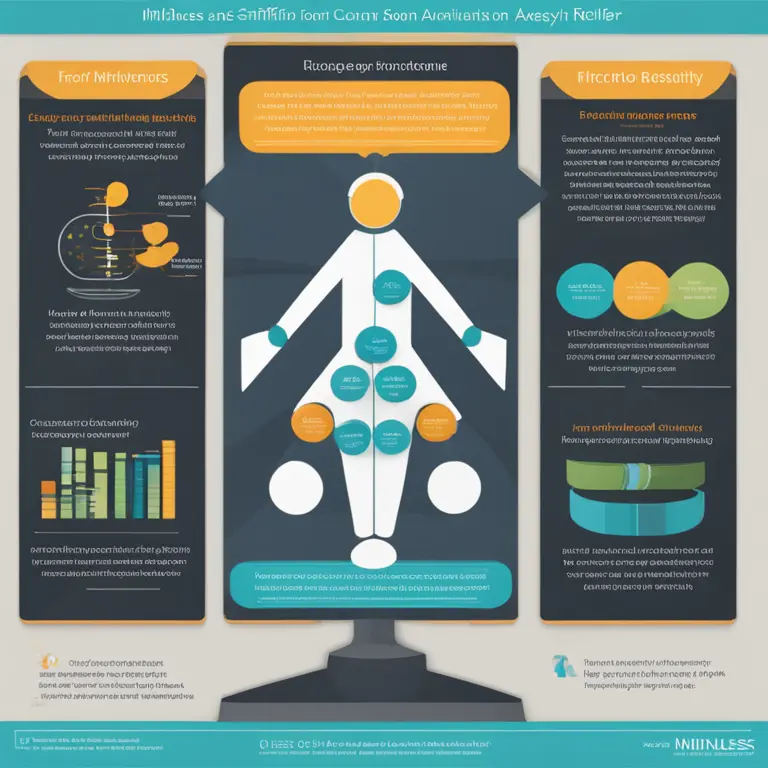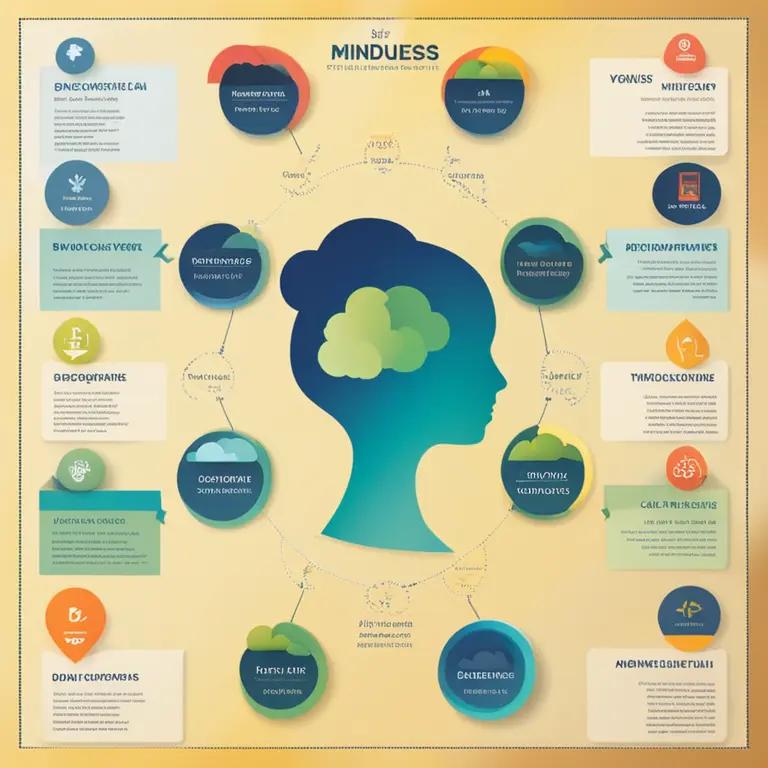
Mindfulness Meditation as a Remedy for Anxiety
Discover how mindfulness meditation can potentially provide relief from anxiety, with insights into the science and strategies for incorporating it into daily life.
article by Hina Kurosawa
The Rise of Anxiety in Modern Society
Anxiety has become increasingly pervasive in our fast-paced world, often cited as the most common mental health issue. Factors such as economic pressures, social media influence, and uncertainties about the future contribute to the rising tide of anxiety among all age groups. The search for effective ways to manage anxiety has led many to explore alternative solutions beyond traditional medication and therapy. Mindfulness meditation has emerged as a promising option, drawing on ancient practices but garnering modern scientific support for its efficacy in reducing anxiety symptoms.

Mindfulness Meditation Defined
Mindfulness meditation involves the practice of being intensely aware of what you're sensing and feeling at every moment—without interpretation or judgment. This technique focuses on breathing patterns and the acknowledgment of one's thoughts and sensations. By cultivating an attitude of openness and curiosity towards one's experiences, individuals practicing mindfulness can root themselves in the present moment, potentially reducing anxious thoughts related to past events or future uncertainties.

Scientific Support for Mindfulness and Anxiety Relief
Emerging research in neuroscience suggests that mindfulness meditation can alter the brain's response to anxiety-producing stimuli. Studies have indicated changes in brain regions related to attention, emotion regulation, and self-awareness, which can potentially reduce anxiety levels. Mental health professionals are increasingly endorsing mindfulness as a supplementary treatment, noting its accessibility and lack of side effects compared to pharmacological therapies.

Practical Applications of Mindfulness
Integrating mindfulness meditation into daily routines can be simple. Start with brief sessions, focusing on breathing and observation of thoughts. The use of guided meditations through apps or online platforms has surged, providing accessible avenues for people to start practicing. Additionally, mindfulness can be practiced in everyday activities like eating, walking, or simply pausing to breathe amid a busy day—each moment offering an opportunity to reduce anxiety through presence and awareness.

Daily Mindfulness for Long-term Benefits
Like any skill, mindfulness becomes more effective with consistency. Encouraging a daily practice, even for a few minutes, can lead to longer-term improvements in managing anxiety. Over time, this practice can help individuals develop a more resilient and adaptive response to life's stressors, enhancing overall wellbeing. As more people adopt mindfulness, its role in fostering a calmer, more centered society continues to be a subject of both scientific study and personal anecdotes.
Conclusion: Mindfulness as a Lifestyle Choice
While not a panacea, mindfulness meditation stands as a viable, accessible option for those seeking to alleviate anxiety. By bringing full attention to the present moment, individuals may find a refuge from the unrelenting pace and pressures of modern life. As both ancient wisdom and modern science suggest, mindfulness meditation holds the promise of a calmer mind and a less anxious existence.
Published: 1/18/2024
Modified: 1/18/2024
More predictions
Come back here soon to learn more about yourself and your future


Easing Pain With Mindfulness Meditation
Discover how meditation can be a powerful tool for pain management, offering natural relief and mind-body harmony.


How Meditation Reshapes Our Brains
Discover the transformative power of meditation and its profound impact on brain structure and function in this insightful article.


The Significance of Modern Meditation
Discover the crucial role meditation plays in fostering well-being, focus, and balance in today's fast-paced world.